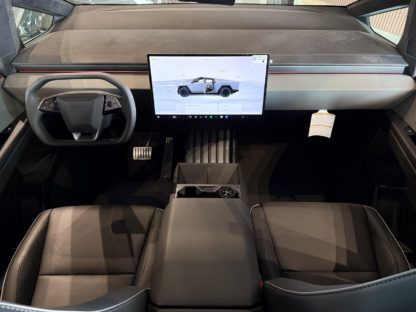In 2024, the urban landscape is witnessing a seismic shift as AI-driven electric vehicles (EVs) redefine how we navigate our cities. Recent reports from Bloomberg Green reveal that by the end of 2023, over 50% of new car sales in major urban areas globally were electric. This impressive statistic underscores the monumental rise of EVs, propelled by advancements in artificial intelligence. In this article, we will explore how AI is transforming urban mobility, discuss the latest innovations in EV technology, and examine what this means for the future of our cities.
The Integration of AI in Electric Vehicles
AI-Powered Autonomy in Urban Settings
AI-driven EVs are not just about electrification; they are about intelligence. With companies like Tesla and Waymo pioneering autonomous technology, urban mobility is becoming smarter and safer:
- Enhanced Navigation: AI algorithms optimize routes in real-time, reducing traffic congestion and improving travel efficiency.
- Safety Features: Advanced driver-assistance systems (ADAS) use AI to predict and prevent accidents, offering features like automatic braking and lane-keeping assist.
- Personalization: AI tailors the driving experience, learning from driver behavior to suggest routes and adjust vehicle settings.
Connectivity and Smart Infrastructure
The synergy between AI-driven EVs and smart city infrastructure is a game-changer. Cities are investing in connected technologies that communicate with vehicles, enhancing urban mobility:
- Smart Traffic Signals: AI-controlled traffic lights adapt to real-time conditions, minimizing wait times and optimizing flow.
- Vehicle-to-Everything (V2X) Communication: Vehicles exchange data with city infrastructure and other vehicles, improving safety and efficiency.
- Predictive Maintenance: AI monitors vehicle health, predicting failures and scheduling maintenance to prevent breakdowns.
Innovations in Battery Technology
Breakthroughs in Energy Storage
Battery technology is the backbone of electric vehicles, and recent advancements are pivotal in driving the adoption of AI-driven EVs:
- Solid-State Batteries: Companies like Toyota and QuantumScape are developing solid-state batteries that offer higher energy density, faster charging times, and longer lifespans.
- Battery Recycling and Sustainability: Brands like Volkswagen are investing in recycling programs to reduce environmental impact and create a sustainable supply chain.
Charging Infrastructure Developments
Charging infrastructure is expanding rapidly to support the growing number of EVs on the road:
- Ultra-Fast Charging Stations: New charging stations from Ionity and Electrify America can deliver up to 350 kW, significantly reducing charging time.
- Wireless Charging Systems: Innovations in wireless charging, such as those from WiTricity, are making it easier and more convenient to charge EVs without cables.
The Impact on Urban Living
Environmental and Economic Benefits
The rise of AI-driven EVs is not just a technological revolution; it is an environmental and economic one:
- Reduced Emissions: EVs produce zero tailpipe emissions, contributing to cleaner air and a healthier environment in urban areas.
- Economic Savings: Lower running costs and reduced dependence on fossil fuels lead to significant savings for both individuals and cities.
The Future of Urban Mobility
As AI-driven EVs become more prevalent, they are set to transform urban mobility in profound ways:
- Shared Mobility Services: Companies like Uber and Lyft are integrating AI-driven EVs into their fleets, offering sustainable and efficient transport options.
- Urban Planning: Cities are redesigning infrastructure to accommodate EVs, creating pedestrian-friendly zones and reducing car dependency.
Practical Tips for Embracing AI-Driven EVs
How to Choose the Right AI-Driven EV
When considering an AI-driven EV, keep the following factors in mind:
- Autonomous Features: Evaluate the level of autonomy and driver-assistance technologies offered.
- Battery Range and Charging: Consider the vehicle’s range and the availability of charging infrastructure in your area.
- Brand Reputation and Support: Choose a reputable brand with a strong service network and customer support.
Where to Buy and Charge AI-Driven EVs
- Dealerships and Online Platforms: Major brands like Ford and Hyundai offer both physical dealerships and online purchasing options.
- Public Charging Networks: Utilize networks like ChargePoint and EVgo for convenient charging solutions.
Conclusion: The Road Ahead
AI-driven EVs are at the forefront of revolutionizing urban mobility in 2024, offering a glimpse into a future where transportation is intelligent, sustainable, and efficient. As cities continue to adapt to these innovations, the potential for AI-driven EVs to reshape our urban landscapes is immense. Are you ready to be part of this transformative journey? Join the conversation and explore how these advancements can benefit your life and community. As technology progresses, the fusion of AI and electric vehicles promises a cleaner, smarter, and more connected world for us all.

